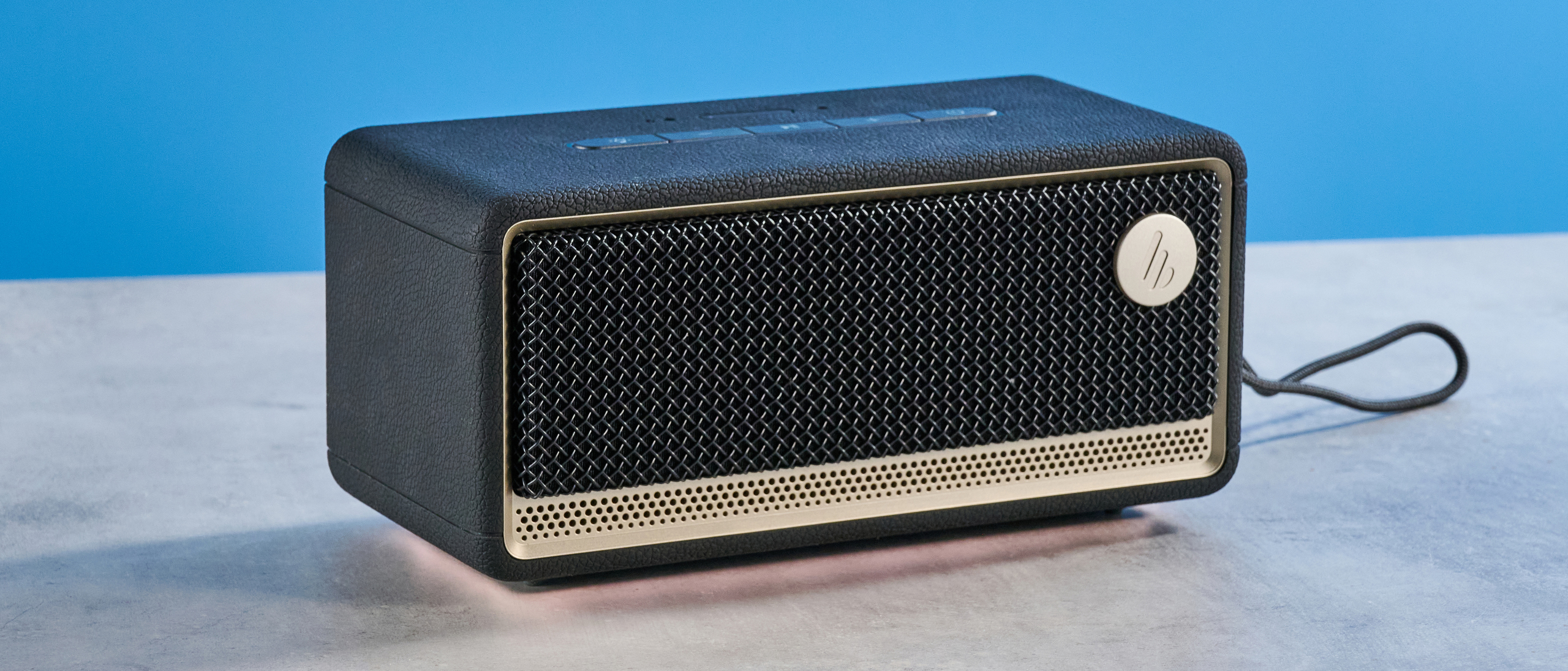Meta's MusicGen AI makes high-quality music clips from text — here's how to try it
Create free AI-generated audio clips with just a text prompt

Meta may not have a ChatGPT clone available for the public yet, but it did just announce a new AI tool you can try today. MusicGen is a new, open-source AI tool that allows you to combine text prompts and clips of existing music to create entirely new sounds.
Meta announced the news via tweet and showed off a couple of examples of MusicGen in action. First, they took a Bach organ melody and gave it the prompt “An 80s driving pop song with heavy drums and synth pads in the background.”
And sure enough — it works. The AI tool spits out an entirely new clip that sounded an awful lot like an 80s synth-pop track. Ditto for when they took Boléro and transformed it into “An energetic hip-hop music piece, with synth sounds and strong bass. There is a rhythmic hi-hat pattern in the drums.” The AI tool doesn’t deviate far from the melody, but it produces new clips just with text and audio context.
So after seeing it in action, I decided to put it to the test.
Meta MusicGen AI: What it's like to use
We present MusicGen: A simple and controllable music generation model. MusicGen can be prompted by both text and melody. We release code (MIT) and models (CC-BY NC) for open research, reproducibility, and for the music community: https://t.co/OkYjL4xDN7 pic.twitter.com/h1l4LGzYgfJune 9, 2023
First, I thought I’d play it safe and recreate the first example Meta provided in its tweet. Thankfully, that was easy since the MusicGen Hugging Face page — where you can try the AI tool for free — provides you with a couple of examples you can test out. And the first one is that same Bach melody turned into a synth-pop track from the Meta demo.
Unfortunately, that Meta demo left out a crucial detail. If you use MusicGen, you’re going to be waiting for a while. Just generating a 12-second clip took me several minutes.
And if you think it’ll be easier just to set up the tool on your own machine and run it locally — think again. The AI tool requires a GPU with at least 16GB of memory, which means your laptop probably won’t cut it.
Get instant access to breaking news, the hottest reviews, great deals and helpful tips.
One final note: MusicGen works best if you provide it with a melody to work off of. I tested it on text only, asking it to produce a clip of “80s hardcore punk in the style of Bad Religion” and the results were mixed. Tonally, it sounded like punk, but definitely didn’t sound like Bad Religion and wasn’t fast-paced enough. In general, I found that MusicGen struggles a bit with tempo unless you give it specific beats per minute to follow.
How to use Meta MusicGen AI
Want to try out MusicGen for yourself? Here’s how to check it out.
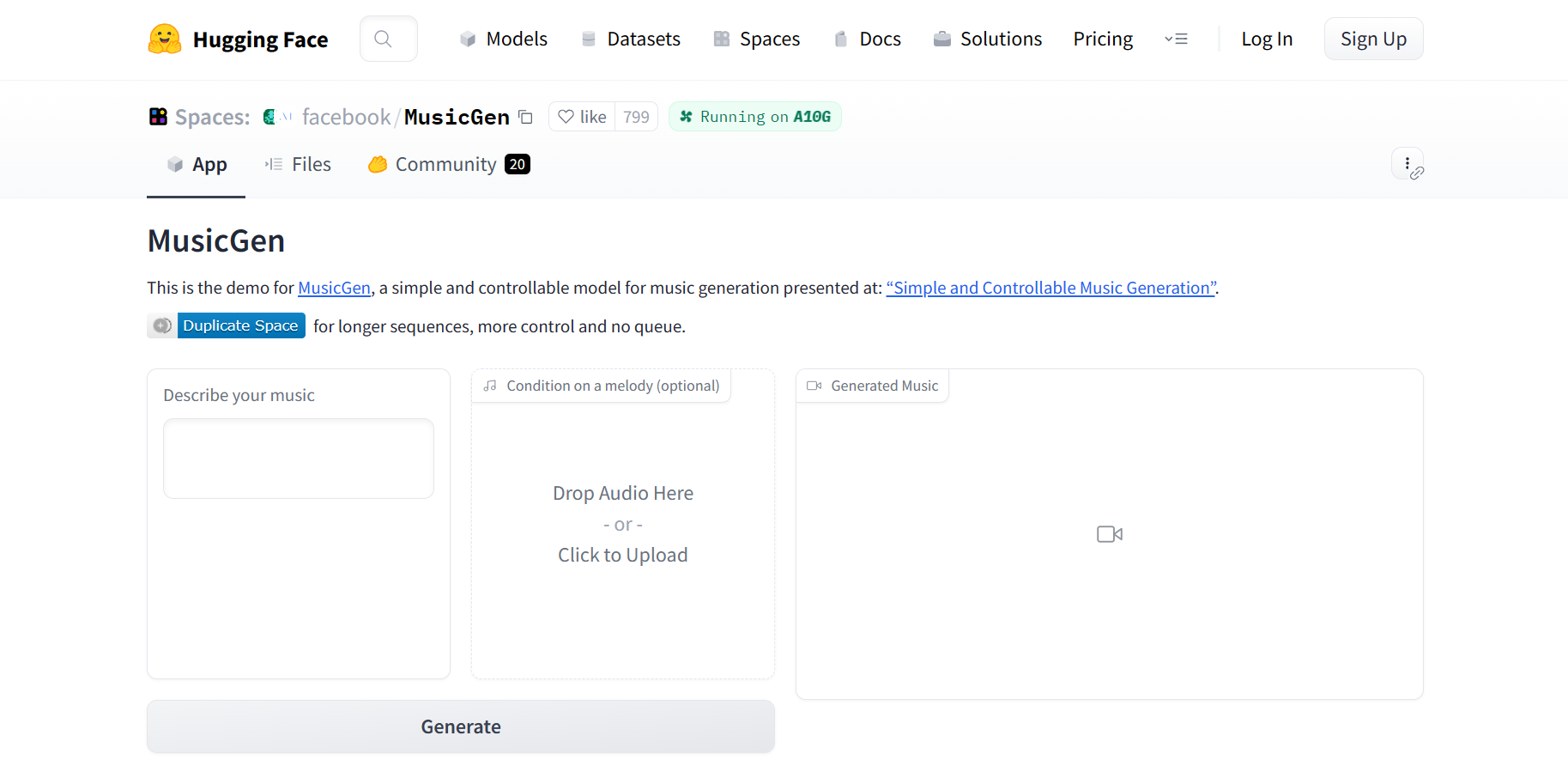
First, go to Meta’s Hugging Face page for MusicGen. This allows you to try the AI tool as a free demo that will create 12-second clips of AI-generated music.
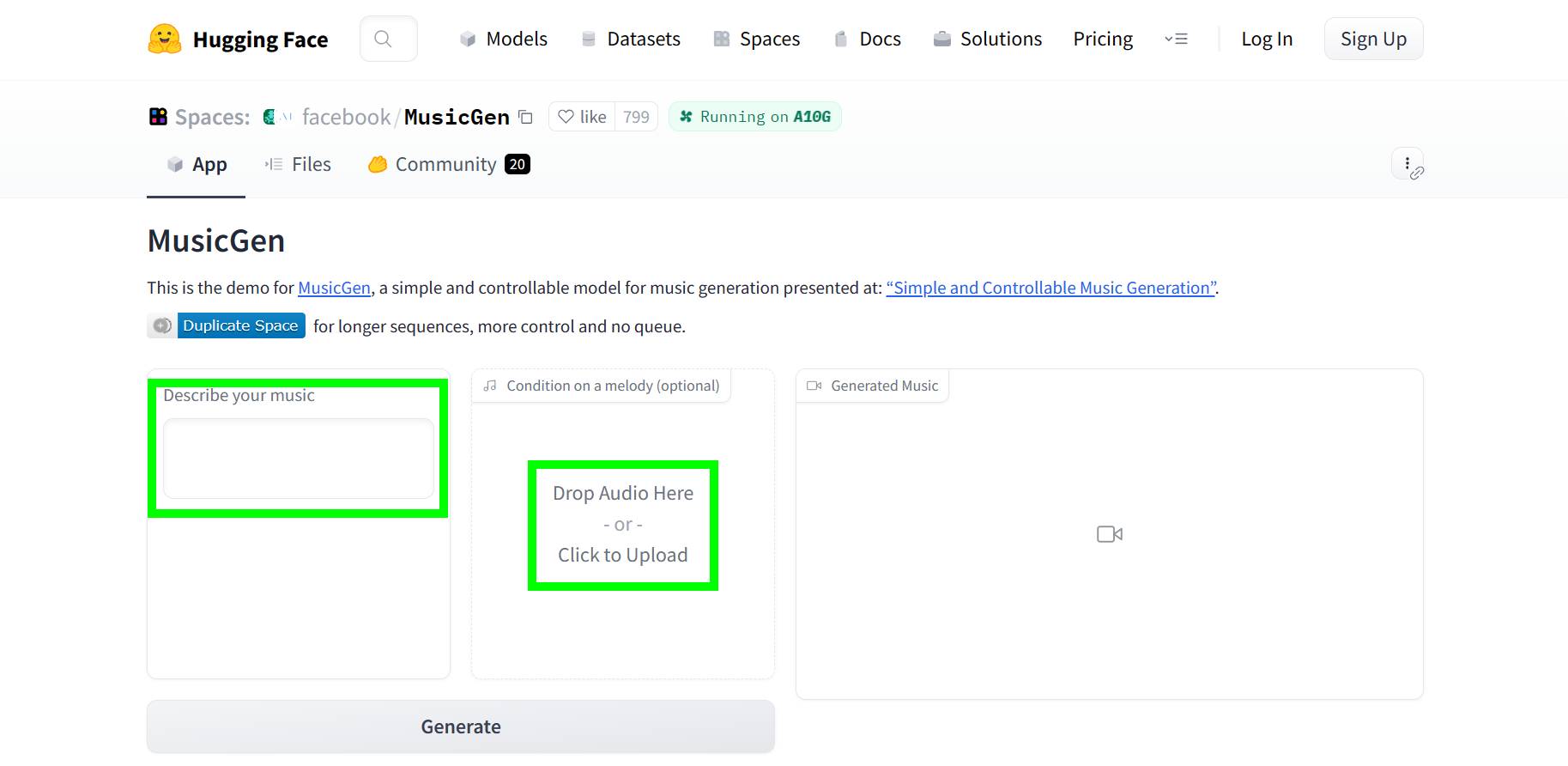
Next, enter in a description of your music in the first text field, then upload a melody for the AI tool to follow.

If you want to make things simple, you can use one of the examples above just by clicking on it. Click on an example to automatically fill the two input fields.
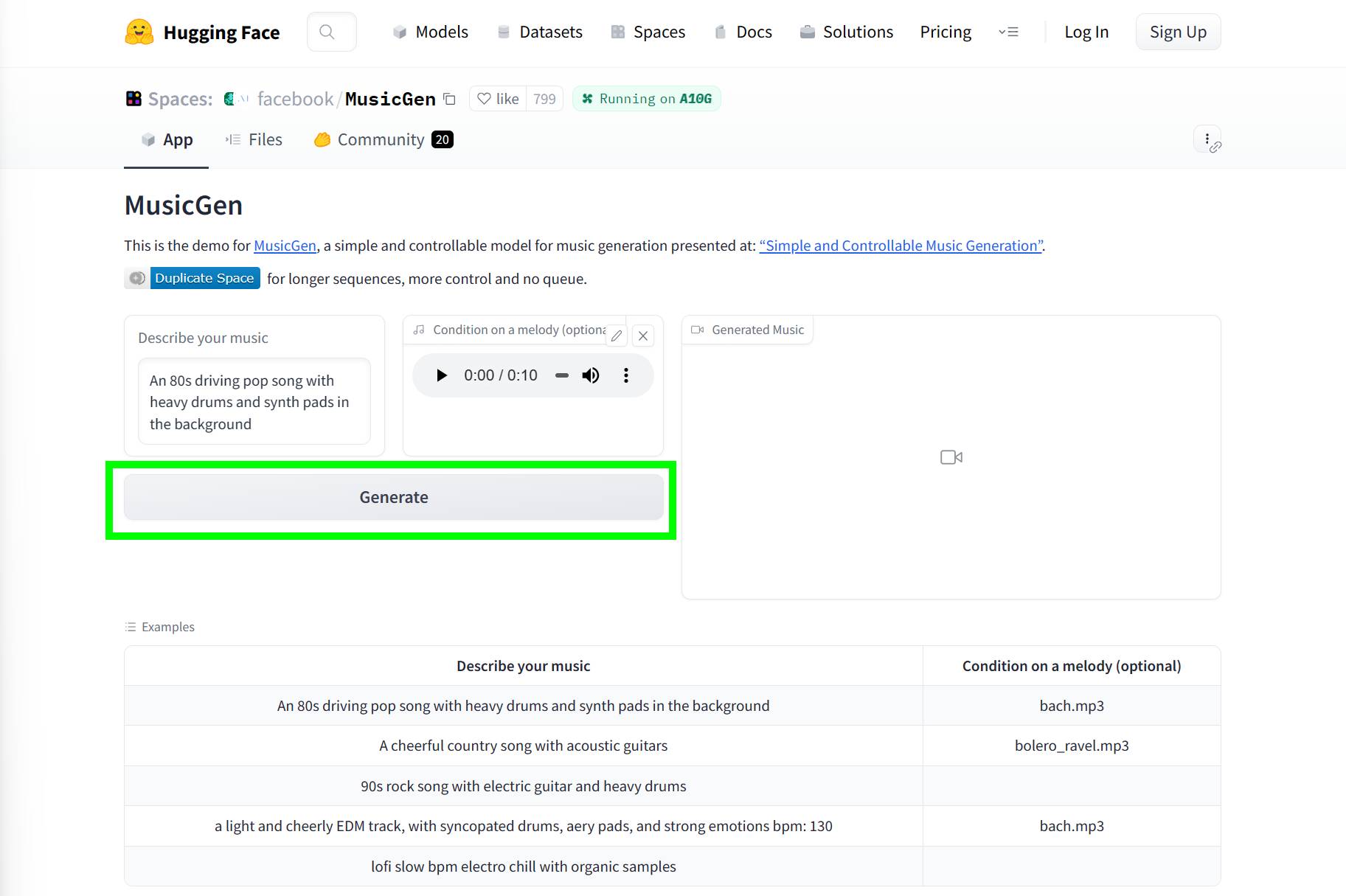
Once your Describe your music and Condition and the melody fields are filled (the latter is optional) click Generate. This will start the AI tool and put your text-to-music request in a queue.
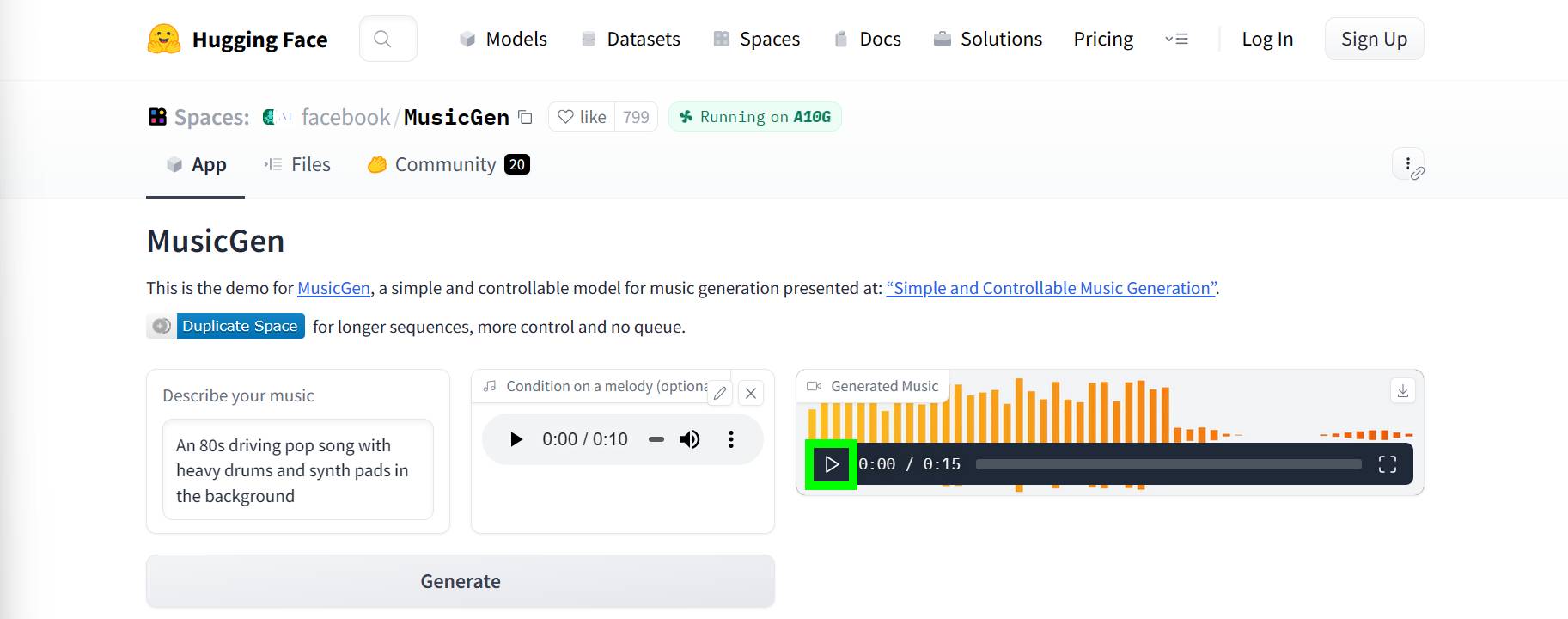
Once your music clip is generated, the generated music box will show a graphic resembling sound waves and become a media player. Click play and enjoy your AI music!
More from Tom's Guide
- Forget ChatGPT — this Google AI can create music from text prompts
- I just used Google Bard's new AI Sheets feature and it's a serious time saver
- Bing Chat breaks free of Edge — big June update may bring AI chatbot to Chrome

Malcolm has been with Tom's Guide since 2022, and has been covering the latest in streaming shows and movies since 2023. He's not one to shy away from a hot take, including that "John Wick" is one of the four greatest films ever made.
 Club Benefits
Club Benefits





